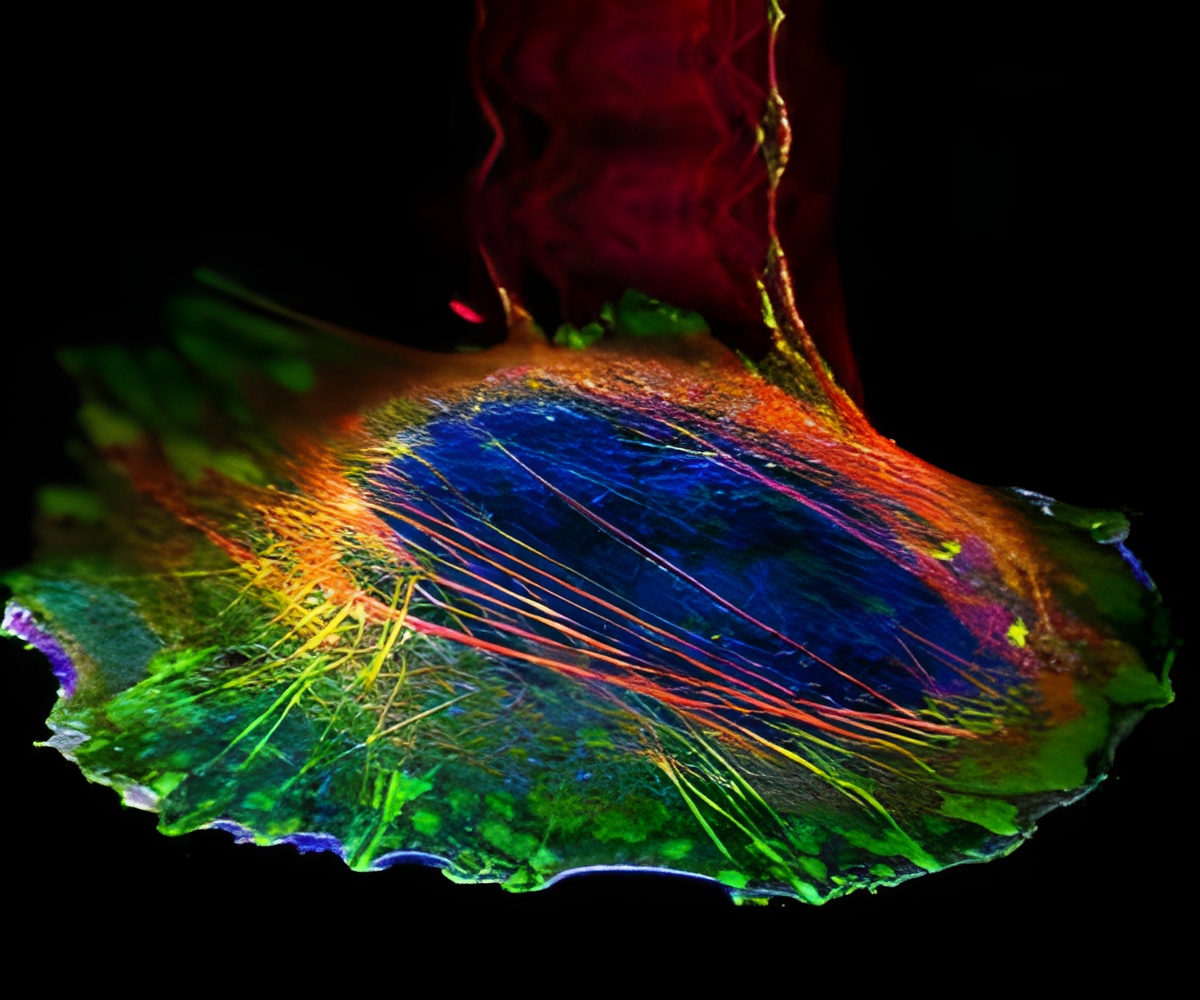Cancer immunotherapy uses drugs that work by making a patient's immune system better at spotting and destroying tumor cells.

‘The new mouse model that targets CD40 expresses the human versions of both the CD40 protein and of Fc receptors, a group of proteins expressed on immune cells.’





"Antibodies that activate CD40 showed great promise in animal models at Rockefeller and elsewhere, but in several international patient trials we've seen a big gap between that promise and clinical efficacy," says Rony Dahan, a postdoctoral fellow in Rockefeller University's Laboratory of Molecular Genetics and Immunology, led by Jeffrey Ravetch. Now, Dahan and his colleagues have created a new mouse model that allowed them to evaluate CD40-antibody drugs with improved accuracy, and advance those that are more likely to be effective in patients. Results from their experiments in these mice are reported in Cancer Cell.
Building a better mouse
Drugs that activate immune cells by targeting CD40 proteins on their surface have been shown to promote antitumor responses in several ways, and each response is initiated by immune cells called dendritic cells. Scientists consider these compounds to be promising because they have been shown to elicit more specific immune responses to tumors than other immunotherapies, and could be used in combination with other drugs.
But so far attempts to develop antibodies targeting CD40 have been disappointing. To find out why, the Rockefeller team engineered mice whose immune systems more closely mimic those of people.
Advertisement
Once the researchers were able to develop receptors that are more like those seen in patients, they were able to look for antibodies that bind them more tightly.
Advertisement
These findings indicate that when it comes to human CD40 antibodies, the Fc domain is important for inducing an effective immune response against tumors.
"We know from our study that current antibodies under development don't fully utilize the potential of the CD40 approach," Dahan says. "We have used our new model to identify and select new Fc-engineered CD40 antibodies that have significantly enhanced antitumor activity. We then advanced the most promising candidate into clinical trials of various solid tumor types, in a project funded by Rockefeller's Robertson Therapeutic Development Fund."
Source-Eurekalert

![Prostate Specific Antigen [PSA] & Prostate Cancer Diagnosis Prostate Specific Antigen [PSA] & Prostate Cancer Diagnosis](https://images.medindia.net/patientinfo/120_100/prostate-specific-antigen.jpg)












